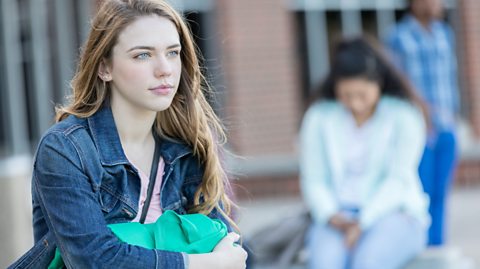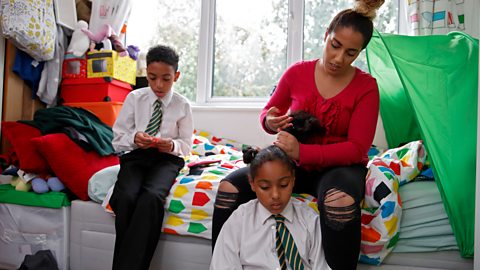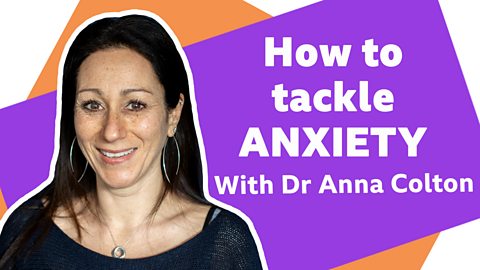Welcome to the Parents' Toolkit
By Matt Burton, (aka Mr Burton) secondary school headteacher

If youтd told teachers at the start of 2020 that theyтd spend months and months working from home and helping with their own childrenтs learning whilst teaching their classes through a millimetre wide webcam, theyтd have thought youтd been on the wind up. There would have to be тunprecedentedт circumstances for those sorts of things to happen.
And, of course, they were unprecedented. They still are. Weтre all hoping that when term starts, schools will be operating in a way that we recognise from pre-pandemic times т and that students can learn, teachers can teach, and everyone can hit the ground running. The fact itтll be the first тregularт start to a school year in almost a thousand days feels strangely excitingтІbut it is, of course, unprecedented (and that, I promise, will be the final time I use that word).
Itтll be easier for some than for others. Some will slide back in with ease, whereas others will struggle to adapt to things. Can we wave a magic wand and get everyone to slip into school in September like a swan gliding through water? Unfortunately not. But remember - when we see a swan exuding a calm, purposeful authorityтІits legs are manically flapping around under the surface. We all have worries т and thatтs fine т so use the tips below to move that swan forwardтІ
Know whatтs coming
Youтll know all about bubbles, one-way systems, staggered starts, finishes and breaks. Youтll have had letter after letter about face masks, hand gel, sanitiser, testing and permissions. Schools have navigated a bumpy road for 18 months and will still have much to do.
Your very first port of call should be to try to access the school website. Read every letter and note down the important things. Do you need to give permission for testing in September? Do you know when and where your child should be returning? What are they planning on doing with classrooms, face masks, bubbles and zones? Knowledge is powerтІso go and get charged up!
If you aren't sure - ask!
Schools will do whatever they can to let parents know exactly whatтs coming. But that doesnтt mean that every question you have will be answered. You might have concerns about your childтs mental health, you might think your child hasnтt understood what their school is putting in place for the new academic year, or you might not be crystal clear on whatтs coming in September yourself. Please donтt suffer in silence! Get on the phone, send an email or a letter and find out whatтs going on. People want to help but canтt if they donтt know what help you need!
Testing, testing, 1, 2, 3тІ
Testing is an important part of stopping the spread of COVID-19 when people donтt know that they have it. Schools are well versed in converting Sports Halls to testing centres following the return to classrooms in March. In , children in secondary schools will be asked to do three rapid tests (one before they go back into classrooms and then two within a few days of that) at the start of term. After that, testing should be done in the home again (the same as last year). Other nations have different policies. See here for and

Exams
After two years of CAGs and TAGs (centre assessed grades and teacher assessed grades), exams will be back in 2022! Schools and teachers everywhere have planned and planned, then re-planned and re-planned, to navigate the changing landscape of the last two yearsтІbut schools are entering the new academic year expecting that exams will be happening (with changes to some - to reflect the fact that so much time has been spent away from face-to-face lessons). As schools get more and more information, theyтll get this out to youтІand, as ever, keep in touch if you have specific concerns.
What can I do to help?
Iтve said before that тthe greatest plan in the world relies on people doing their partт. Knowing whatтs expected of your children when they go back is really important, but itтs also important that they know whatтs expected, too. Their final memories of school from last year may have included bubbles, zones and face coverings, and the changes will take some getting used to. Talk to your child about whatтs to come, what will change and how itтs okay to feel a bit weirded out by the world (and a huge part of their world is school).
One thing that schools do want to get on with, without question, is getting children back learning in their normal routines. Todayтs тnormalт is different to the one from February 2020 т thereтs no question about that т but every person, in every school, in every corner of the country wants to create a positive climate in which children can learn, grow, catch up with any lost learning (for those who have missed periods), and they want to get everyone roaring down the road to success.
Letтs come back together and have a catch up in a yearтs time, shall we? Letтs hope weтre feeling more settled and ready for a more usual back to school experience.

Parents' Toolkit: Back to School. collection
Advice for parents on helping children adjust to a new school year. With practical tips and support around resilience and mental health.

How to tackle anxiety with Dr Anna Colton
Dr Anna has made seven short films with easy to learn techniques.

Parents' Toolkit
Fun activities, real-life stories, wellbeing support and loads of helpful advice - we're here for you and your child.
